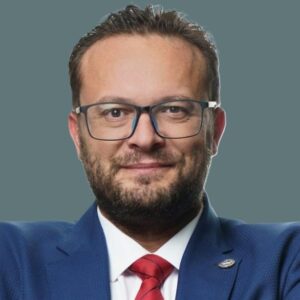Uzbekistan’s Tourism: From Silk Road Legacy to Global Future

Prof. Dr. Erdogan Ekiz
Founding Dean of Hospitality Management and Tourism School at Central Asian University, Uzbekistan

Few countries carry the allure of history and the promise of tomorrow quite like Uzbekistan. At the heart of the Silk Road, its cities—Samarkand, Bukhara, and Khiva—have long enchanted travelers with their mosques, mausoleums, and bustling bazaars. But in recent years, Uzbekistan has not just relied on its past. It has actively redefined itself as one of the most dynamic emerging destinations in Central Asia.
From Hidden Gem to Rising Star

Tourism in Uzbekistan was historically centered on cultural heritage and pilgrimage. The Silk Road identity gave it strong recognition, but infrastructure was limited, access was cumbersome, and international awareness was modest. By the early 2000s, although visitors admired its beauty, challenges such as limited air connectivity, strict visa regimes, and underdeveloped hospitality standards restricted growth.
Reform, Revival, Recognition
That picture has changed dramatically. Reforms since 2016 have unlocked Uzbekistan’s tourism potential. Visa liberalization now allows citizens of over 90 countries to enter visa-free, while e-visa systems streamline entry for many more. Major infrastructure investments—including new hotels, high-speed trains, and airports—have expanded capacity.
The results are remarkable. In 2024 alone, Uzbekistan welcomed over 10 million international visitors, generated $3.5 billion in tourism revenue, and created more than 50,000 new jobs in tourism and hospitality. Domestic tourism has surged as well, with nearly 23 million trips taken by Uzbek citizens. International recognition followed, with BBC Travel and Wanderlust both listing Uzbekistan among the world’s top destinations for 2025.
Tourism and Regional Development in Central Asia

Uzbekistan’s rise is also a catalyst for broader regional development. Central Asia shares a treasure trove of tourism assets—Silk Road heritage, nomadic traditions, vast deserts, and mountain landscapes. As the largest population and transport hub in the region, Uzbekistan plays a pivotal role in shaping this collective tourism identity. Improved air and rail connectivity from Tashkent strengthens links with neighboring Kazakhstan, Kyrgyzstan, Tajikistan, and Turkmenistan, creating opportunities for multi-country travel itineraries. Beyond economics, tourism fosters cultural diplomacy, trade partnerships, and people-to-people exchange, positioning Uzbekistan not just as a national success story but as a regional leader in sustainable development.
Realizing this vision requires shared responsibility: government must continue bold reforms and infrastructure investment; the private sector should commit to quality and sustainability; academia has to provide research that informs decision-making; and local communities must be included in planning and benefit-sharing. Together, these actors can transform Central Asia into a connected, competitive, and sustainable tourism region—one in which Uzbekistan serves as both a gateway and a guide.
Challenges and Opportunities Ahead

Uzbekistan’s tourism story is one of rapid growth, but long-term success depends on coordinated action. A quick glance at the sector shows both promise and pressure: rich heritage, strong government backing, and booming visitor numbers are clear strengths, while gaps in infrastructure, workforce skills, and sustainability remain hurdles. Opportunities lie in eco-tourism, digital innovation, and regional Silk Road collaborations—yet competition from neighbors and environmental pressures are real threats.
Talent: The Key to Lasting Success

Infrastructure and marketing can attract visitors, but people create experiences. And here lies Uzbekistan’s next big task: developing a skilled, globally competitive workforce for tourism and hospitality. As one hotelier put it, “We are building world-class hotels… but who will work in them?”
The answer lies in modern, internationally benchmarked education. Programs that combine theory with hands-on practice, that teach not only service but also leadership, innovation, and sustainability. A pioneering example is the dual-degree program between Central Asian University’s Hospitality Management and Tourism School and HTMi Switzerland. Delivered fully in English, it offers Uzbek students both a Swiss and a local diploma, internships with global hotel brands, and a direct pathway to international careers.
This model ensures that Uzbekistan’s tourism growth is not only about numbers but about quality, service excellence, and global standards.
Looking Forward with Confidence

Uzbekistan’s tourism journey is still unfolding, but the trajectory is unmistakable. The country has already shown remarkable resilience in bouncing back from global crises and is now gaining international recognition as a must-visit destination. Its Silk Road heritage provides timeless appeal, while its modern vision for eco-tourism, digital transformation, and hospitality education gives it a competitive edge in today’s global marketplace.
For travelers, Uzbekistan offers discovery, authenticity, and connection. For its people, tourism is creating jobs, opportunities, and pride. And for the region, it is a force for cooperation and shared prosperity.
If government, business, academia, and communities continue to move forward together, Uzbekistan will not only welcome millions more visitors—it will shape the very future of Central Asian tourism. With the right blend of heritage, innovation, and human capital, Uzbekistan is poised to become more than a destination. It is ready to become an inspiration.

Prof. Dr. Erdogan Ekiz
Erdogan Ekiz is Founding Dean of Hospitality Management and Tourism School Central Asian University, Tashkent, Uzbekistan. He was previously Dean of Faculty at TEAM University in Tashkent Uzbekistan and before that he worked in Hong Kong, Taiwan, Cyprus, Turkey, Malaysia, the Kingdom of Saudi Arabia, Morocco various universities over 25 years.
Dr. Ekiz completed his Ph.D. in tourism and hospitality management at the SHTM at Hong Kong Polytechnic University. He has recently received a DSc in Economics from Supreme Attestation Commission, Cabinet of Ministers of the Republic of Uzbekistan. He has a B.Sc. in THM and an M.B.A. in services marketing from Eastern Mediterranean University in North Cyprus. He is a ‘Certified Hospitality Educator’ (CHE) from the American Hotel and Lodging Educational Institute and ‘Qualified Learning Facilitator’ (QLF) from École hôtelière de Lausanne. He is an ‘Advanced Trainer’ with Distinction of International Air Transport Association (IATA).
